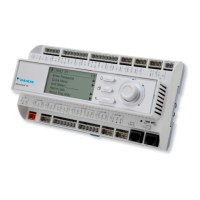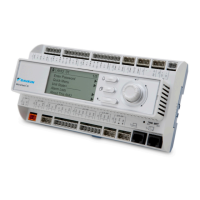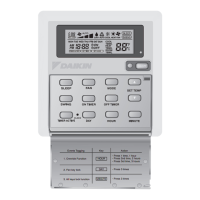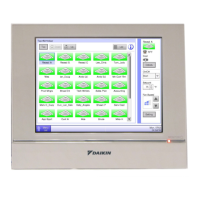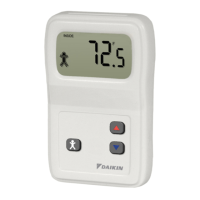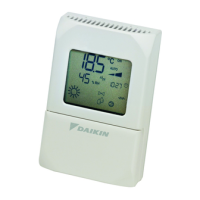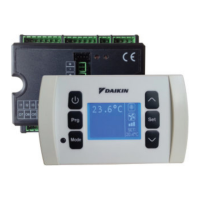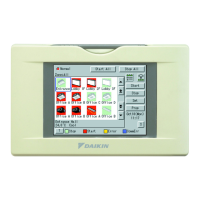OM 1263 • MICROTECH UNIT CONTROLLER 100 www.DaikinApplied.com
Supply Fan Failure Codes
HLL = Hall Sensor Error
First occurrence:
Power uctuations may be responsible.
Corrective: Reset the failure; re-start the motor and observe it. If applicable, lter out the source of the disturbing voltage.
Repeated occurrence:
Question: Do other fans show the same failure?
Yes: Systematically search for voltage peaks.
No: It seems to be a hardware problem of the fan. Fan need to be replaced.
TFEI = Electronics Interior Overheated
First occurrence:
Too high ambient temperature may be responsible.
Question: • Could ambient temperature have been too high?
• Is it possible to connect the fan to EC Control in order to display the temperature? If so, is the displayed
temperature within the expected temperature range?
Corrective: If the displayed temperature is above 95°C (the electronics switches o at 105°C,) double-check the ambient
temperature in each operating mode.
Reset the failure; re-start the motor and observe it.
Repeated occurrence:
Question: Do other fans show the same failure?
Yes: Systematically search for the cause of excessive ambient temperature. Perhaps use a data logger or read out
the electronics temperature via EC Control.
No: It seems to be a hardware problem of the fan. Fan need to be replaced.
TFM = Motor Overheated
First occurrence:
Excessive ambient temperature may be responsible.
Question: Could ambient temperature have been too high? Or is the motor overloaded?
• Is it possible to connect the fan to EC Control in order to display the motor temperature?
• Is the displayed temperature within the expected temperature range?
Corrective: If the displayed temperature is too high:
• Double-check the motor temperature in each operating mode.
• Check of the fan load: Measure the input power at max. load/ operating point and compare the measured value
with nominal data on the label. Is there any discrepancy?
• Reset the failure; re-start the motor and observe it.
Repeated occurrence:
Question: Do other fans show the same failure?
Yes: systematically search for the cause of excessive ambient temperature. Perhaps use a data logger or read out
the electronics temperature via EC Control.
No: It seems to be a hardware problem of the fan. Fan need to be replaced.
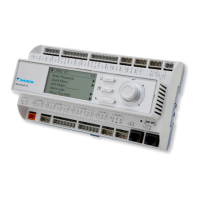
